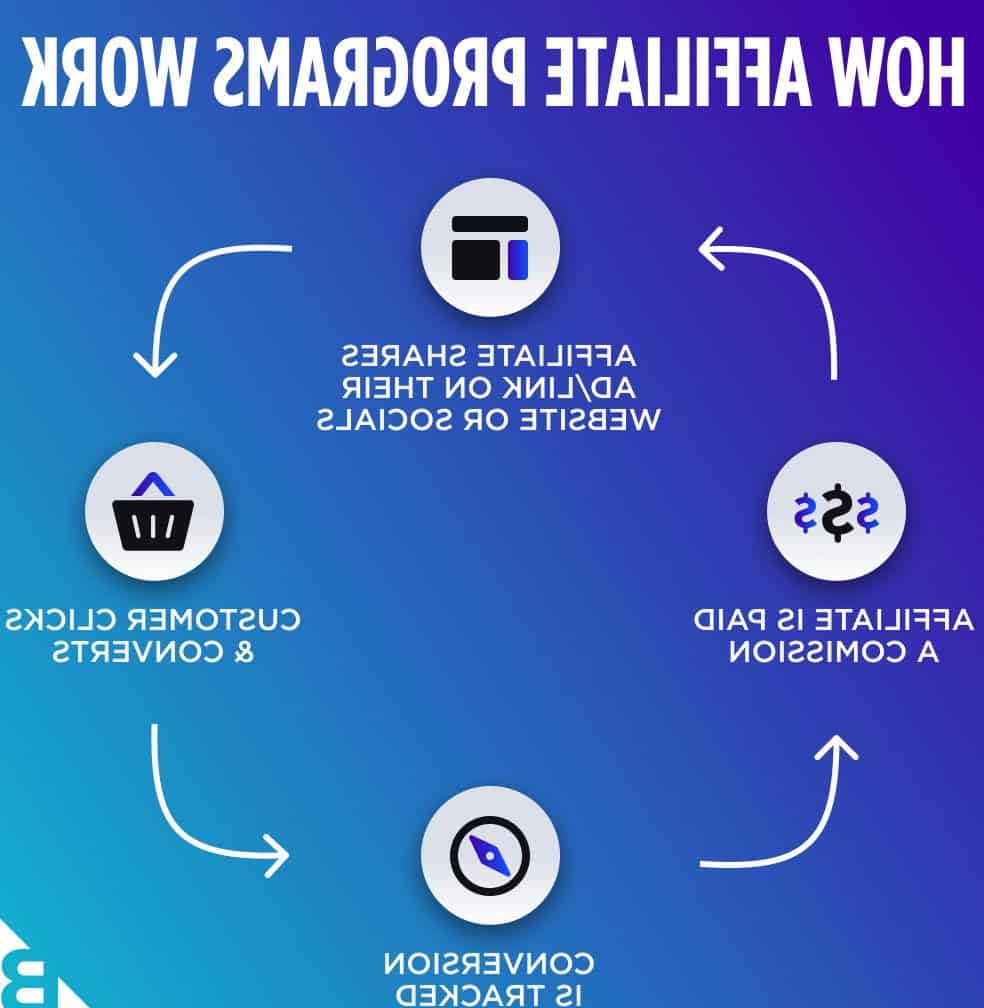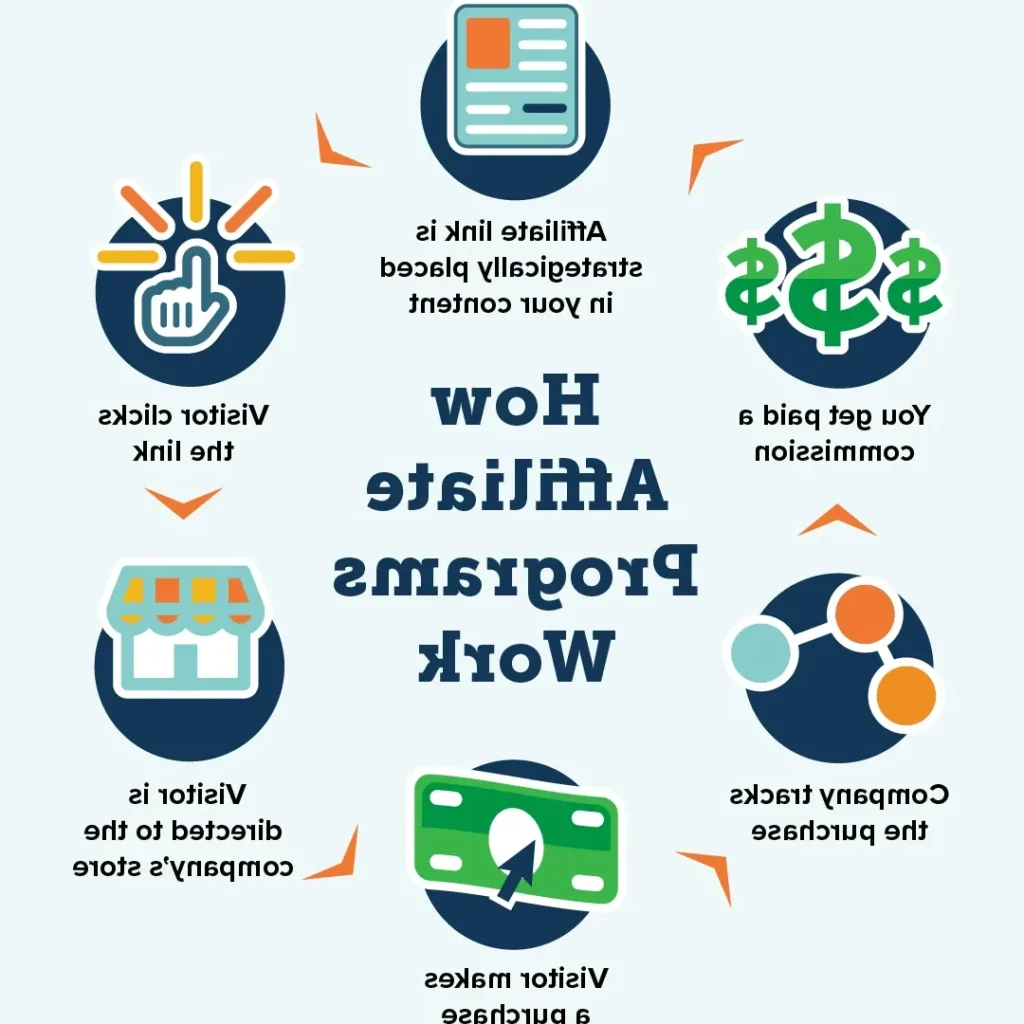Are you an aspiring affiliate marketer looking to find a profitable niche? Look no further! In this article, we will share valuable tips on how to choose a niche that not only attracts potential customers, but also converts them into loyal buyers. Whether you’re a beginner or an experienced marketer, these tips will help you uncover the perfect niche that will drive your affiliate marketing success to new heights. So, grab a pen and paper and get ready to take notes on how to find a niche that converts those window shoppers into satisfied customers.



Understanding Affiliate Marketing
Affiliate marketing is a popular and lucrative online business model, where individuals or businesses earn a commission by promoting products or services of other companies. As an affiliate marketer, you act as a bridge between the consumers and the merchants, helping to generate sales and drive traffic to the merchant’s website. Understanding the basics of affiliate marketing is crucial for success in this field.
Basics of Affiliate Marketing
To start with affiliate marketing, you first need to join an affiliate program. These programs are offered by various companies and brands, providing you with unique affiliate links or codes that track your referrals. You then promote these products or services by incorporating these links into your website, blog, or social media platforms.
When a visitor clicks on your affiliate link and makes a purchase from the merchant’s website, you earn a commission. The commission amount varies depending on the merchant and the affiliate program’s terms and conditions. It is important to note that you only earn a commission when a sale is made through your unique affiliate link.
The Role of Niches in Affiliate Marketing
Niches play a crucial role in affiliate marketing. A niche refers to a specific segment or category within a broader market. Rather than targeting a broad audience, focusing on a niche allows you to cater to a specific group of people with common interests or needs.
By choosing a niche, you can establish yourself as an authority and build credibility within that particular industry. It allows you to tailor your content and promotions to meet the specific needs and preferences of your target audience, increasing the likelihood of driving conversions and sales.
Benefits of Choosing the Right Niche
Choosing the right niche is essential for the success of your affiliate marketing business. By selecting a niche that aligns with your interests, passions, and expertise, you are more likely to enjoy the journey and stay motivated. Additionally, a well-chosen niche can offer several benefits, including:
-
Lower competition: Focusing on a niche with less competition gives you a greater chance to stand out and establish yourself as an authority figure in that field.
-
Targeted audience: A niche allows you to target a specific audience with common interests and needs, increasing the relevancy of your content and promotions.
-
Higher conversion rates: When you cater to a niche audience, you can create highly targeted content and promotions that resonate with them, leading to higher conversion rates.
-
Opportunity for growth: Once you establish yourself in a niche and build a loyal audience, you can expand your reach and diversify your income streams.
Choosing the right niche can be a decisive factor in your affiliate marketing journey. Therefore, it is important to take the time to research and analyze various niches before making a final decision.
Analyzing Market Trends
To succeed in affiliate marketing, it’s crucial to stay updated on current market trends. By understanding the latest trends, you can identify emerging opportunities and adapt your strategies accordingly.
Understanding Current Market Trends
Market trends refer to the patterns or changes in consumer behavior, preferences, and buying patterns in a particular industry. By analyzing these trends, you can gain valuable insights into the market’s current demands and opportunities. Stay updated with industry news, follow influential figures in your niche, and continually research market reports to identify trends.
Influence of Social and Economic Factors
Social and economic factors have a significant impact on market trends. Analyzing how societal changes, cultural shifts, and economic factors influence consumer behavior allows you to align your affiliate marketing strategies with the evolving needs and preferences of your target audience.
For example, if you notice a growing trend of eco-consciousness, you can choose affiliate products that promote sustainability and environmental responsibility. By understanding and adapting to these social and economic factors, you can position yourself as an affiliate marketer who caters to the changing demands of consumers.
Impact of Technological Innovations
Technological advancements have revolutionized the way businesses operate and how consumers make purchasing decisions. As an affiliate marketer, it is crucial to stay updated on the latest technological innovations in your niche industry.
Embracing these innovations can open up new opportunities for reaching your target audience and enhancing the user experience. For example, if there is a rise in mobile app usage, consider promoting affiliate products through mobile-friendly platforms or developing a mobile app yourself.
By analyzing market trends and understanding the impact of social and economic factors as well as technological innovations, you can position yourself ahead of the competition and capitalize on emerging opportunities.
Knowing Your Passion and Skills
Finding success in affiliate marketing goes beyond choosing the right niche. It is equally important to align your passion, interests, and skills with the niche you select.
Identifying Your Interests
When choosing a niche, start by exploring your own interests and hobbies. Affiliate marketing requires dedication and long-term commitment, so it’s important to choose a niche that you are passionate about. When you genuinely enjoy the topic you are promoting, it becomes easier to create engaging content and connect with your audience on a deeper level.
Consider your personal hobbies, experiences, and areas of expertise. Reflect on what excites you and what you enjoy researching or learning about. Your passion will shine through in your content, making it more compelling and captivating for your audience.
Leveraging Your Skills and Knowledge
Apart from your interests, it is equally important to assess your skills and knowledge in a particular niche. Take inventory of your professional skills, educational background, or any certifications you may have. These skills can give you a competitive edge and allow you to provide valuable insights and expertise to your audience.
For example, if you have a background in finance, you can leverage your knowledge to promote affiliate products related to personal finance or investment. By combining your passion with your skill set, you can establish yourself as an authoritative voice in your chosen niche.
Passion Versus Profitability
While it’s important to choose a niche that aligns with your passion and interests, it’s also essential to consider the niche’s profitability. Some niches may have high competition or limited earning potential, making it challenging to generate significant income.
Strike a balance between your passion and profitability by conducting thorough research on your chosen niche. Look for niches with a growing audience, high demand for products or services, and a healthy affiliate commission structure. This ensures that your affiliate marketing venture is not only fulfilling but also financially rewarding.
By aligning your passion, interests, and skills with a profitable niche, you increase your chances of building a successful affiliate marketing business that brings you both personal fulfillment and financial stability.

Conducting Keyword Research
Keyword research is a crucial aspect of affiliate marketing. By identifying and targeting the right keywords, you can optimize your content and improve your website’s visibility in search engine results.
Importance of Keyword Research
Keywords are the phrases or terms that people type into search engines when looking for information, products, or services. By conducting keyword research, you gain insights into the specific words and phrases your target audience is using to find content related to your niche.
By incorporating these keywords into your website’s content, blog posts, and product descriptions, you increase the chances of your website appearing in relevant search engine results. This drives organic traffic to your website and increases the potential for conversions.
Using Keyword Tools
To conduct effective keyword research, utilize keyword research tools such as Google Keyword Planner, SEMrush, or Ahrefs. These tools provide valuable data and metrics, including the search volume, competition level, and related keyword suggestions.
Start by entering general terms or phrases related to your niche into the keyword research tool. Analyze the search volume and competition level of these keywords to gauge their effectiveness. Look for keywords with a decent search volume but lower competition to optimize your chances of ranking higher in search engine results.
Analyzing Keyword Data
After gathering keyword data, it’s important to analyze and prioritize the keywords based on their relevance and potential impact on your website’s visibility. Look for long-tail keywords, which are more specific and have a higher chance of driving targeted traffic.
Pay attention to the search intent behind specific keywords. Are people searching for information or looking to make a purchase? By understanding the search intent, you can align your content and promotions to meet the needs of your target audience effectively.
Regularly conduct keyword research and update your keyword strategy to stay relevant in the ever-evolving digital landscape. By targeting the right keywords, you can improve your website’s visibility and drive organic traffic, leading to higher conversions and sales.
Evaluating the Competition
Competition analysis is essential for affiliate marketers to identify the strengths and weaknesses of their competitors and find gaps in the market that can be capitalized on.
Inspecting the Competitor’s Strategy
Start by researching and analyzing the strategies implemented by your competitors in the same niche. Look for successful affiliate marketers who are targeting a similar audience. Study their website layouts, content creation methods, promotional strategies, and monetization techniques.
By understanding what works for your competitors, you can gain valuable insights into the strategies that resonate with your target audience. Take note of their engaging content, unique selling propositions, and the affiliate products they promote.
Understanding the Strengths and Weaknesses of Competitors
In-depth competitor analysis allows you to identify your competitor’s strengths and weaknesses. Assess the quality of their content, user experience on their website, and their social media presence. Look for aspects that can be improved or areas where you can provide a better experience for your audience.
By understanding the weaknesses of your competitors, you can find opportunities to differentiate yourself and offer a unique value proposition. For example, if your competitor lacks comprehensive product reviews, you can focus on creating detailed and honest reviews to provide more value to your audience.
Finding Gaps in the Market
Competition analysis also helps you identify gaps in the market that have not been fully exploited by your competitors. Look for niches or segments within your industry that are underserved or overlooked. By identifying these gaps, you can position yourself as a go-to resource for your target audience, fulfilling their unmet needs.
Take note of the types of content and products that your competitors are not actively promoting. Look for topics or sub-niches that have less competition but still have a significant audience demand. By specializing in these areas, you can establish yourself as an authority and attract a dedicated following.
Conduct regular competitor analysis to stay updated on the latest strategies and find new opportunities to differentiate yourself within your niche. By understanding your competitors, you can effectively position your affiliate marketing business to stand out and cater to the needs of your target audience.
Assessing Profitability
Before fully committing to a specific niche, it is crucial to assess its profitability. Evaluating the potential earnings, affiliate programs, and the sustainability of the niche allows you to make an informed decision.
Checking Affiliate Programs and Commissions
Research various affiliate programs within your chosen niche and compare their commission structures. Look for programs that offer competitive commission rates and favorable terms and conditions. Assess the reputation and reliability of the affiliate programs to ensure timely payments and comprehensive reporting.
Consider the average order value and potential recurring earnings. Some affiliate programs offer recurring commissions for long-term engagements, which can significantly boost your earnings over time. Analyze the products or services offered by the affiliate programs to ensure they align with the interests and needs of your target audience.
Considering the Cost of Starting and Sustaining the Niche
Explore the potential costs associated with starting and sustaining your chosen niche. Consider the investment required for website development, content creation, paid advertising, and other promotional activities. Assess the financial viability of the niche and ensure that the potential returns outweigh the costs involved.
Factor in ongoing expenses, such as hosting fees, domain registration, digital marketing tools, and platform maintenance. Evaluating these costs will help you determine the profitability of the niche and understand the financial commitment required.
Estimating Potential Earnings
While it is impossible to accurately predict your exact earnings, estimating potential earnings can give you a rough idea of the niche’s profitability. Consider factors such as the average commission rate, the size of your target audience, and the conversion rate you expect to achieve.
Look for data on the average earnings of successful affiliate marketers in your niche to gain insights into the earning potential. Keep in mind that building a successful affiliate marketing business takes time and consistent effort. Set realistic goals and be prepared to invest the necessary time and resources to achieve them.
By evaluating the profitability of your chosen niche, you can make an informed decision and ensure that your affiliate marketing business is financially sustainable and profitable in the long run.
Analyzing Audience Needs
Understanding your target audience is essential for affiliate marketers. By identifying the problems and needs of your audience, you can offer relevant solutions through the promotion of affiliate products.
Understanding Your Target Audience
Start by creating a detailed profile of your target audience. Consider demographic factors such as age, gender, location, and income level. Analyze their interests, hobbies, and online behavior. Understanding their motivations, pain points, and aspirations will help you tailor your content and promotions to meet their needs effectively.
Identifying Audience Problems and Needs
By conducting market research and interacting with your audience, identify the common problems they face within your niche. Take note of the questions they frequently ask, the challenges they encounter, and the gaps in existing products or services. This will help you identify affiliate products that address their pain points and offer valuable solutions.
Use social media platforms, forums, and online communities to engage with your audience and gain insights into their needs. Conduct surveys or polls to gather direct feedback and opinions. By actively listening to your audience, you can position yourself as a trusted resource and build strong connections.
Offering Solutions Through Affiliate Products
Once you understand your target audience’s needs, you can recommend and promote affiliate products that provide solutions to their problems. Ensure that the products you choose are high-quality, reliable, and relevant to your audience’s needs. Only promote products and services that you genuinely believe in and have confidence in recommending.
Create informative and persuasive content that showcases the benefits of these affiliate products and how they can help your audience overcome their challenges. Focus on adding value and educating your audience rather than forcefully selling. By offering valuable solutions, you strengthen your relationship with your audience and increase the chances of earning their trust and loyalty.
Regularly assess and update your understanding of your target audience’s needs and preferences. By staying attuned to their evolving needs, you can adapt your content and promotions to meet their expectations and establish yourself as a trusted authority within your niche.
Staying Updated and Adaptable
In the dynamic world of affiliate marketing, staying updated and adaptable is crucial. Embracing industry changes and being flexible with your niche selection can help you thrive in a continuously evolving landscape.
Keeping Up With Industry Changes
The digital marketing landscape is constantly evolving, with new trends, technologies, and strategies emerging regularly. Stay updated with industry news, follow influential figures and experts in your niche, and actively participate in relevant online communities.
By staying informed about the latest industry changes, you can proactively adapt your strategies, leverage emerging opportunities, and stay ahead of your competition. Attend conferences, webinars, and workshops to expand your knowledge and gain valuable insights from industry leaders.
Being Flexible With Niche Selection
Over time, the demands and preferences of your target audience may change. Be open to adjusting your niche selection if necessary. Continually assess the profitability and sustainability of your current niche and evaluate whether it aligns with the evolving needs of your audience.
If you notice a decline in interest or a saturation of the market, consider branching out to related niches or exploring new segments within your industry. By diversifying your niche selection, you can tap into new markets, attract a wider audience, and mitigate risks associated with relying solely on one niche.
Scaling and Adjusting As Required
As your affiliate marketing business grows, be prepared to scale and adjust your strategies accordingly. Monitor your performance regularly, track your key performance indicators (KPIs), and set goals for growth. Identify areas that require improvement or optimization and seek ways to enhance your performance.
Experiment with different promotional strategies, explore new affiliate programs, or collaborate with other influencers or content creators to expand your reach. Stay agile and adaptable to changes in consumer behavior, technological advancements, and market trends. By constantly optimizing your strategies, you can maximize your conversions and earnings.
Creating Quality Content
Creating quality content is vital for attracting and engaging your target audience. By offering valuable information, building trust through authenticity, and optimizing your content for search engines, you can drive traffic and increase conversions.
Offering Valuable Information
Content that offers valuable information is essential for attracting and retaining your audience. Research your niche thoroughly and provide in-depth knowledge, insights, and tips that are relevant to your audience’s needs. Focus on being informative, educational, and actionable in your content.
Regularly produce fresh and engaging content in various formats such as blog posts, videos, podcasts, or infographics. This not only appeals to different learning styles but also helps you reach a wider audience and drive traffic from different sources.
Building Trust Through Authenticity
Building trust is crucial for success in affiliate marketing. Be authentic and transparent in your content. Share your personal experiences, opinions, and recommendations genuinely. By showcasing your expertise and genuine interest in helping your audience, you earn their trust and loyalty.
Avoid promoting products solely for financial gain. Choose affiliate products that align with your values and genuinely benefit your audience. Provide honest and unbiased reviews, highlighting both the pros and cons of the products you recommend. By being trustworthy, you establish a strong bond with your audience, increasing the likelihood of conversions.
Attracting Traffic Through SEO
Search engine optimization (SEO) is essential for driving organic traffic to your website. Optimize your content by incorporating relevant keywords, writing compelling meta descriptions and title tags, and ensuring your website’s structure is user-friendly.
Regularly update your content and ensure it provides value. High-quality and up-to-date content ranks higher in search engine results, attracting more organic traffic. Consider incorporating multimedia elements such as images, videos, or infographics to enhance user engagement and appeal to search engines.
Utilize other SEO techniques, such as building backlinks from reputable sources, optimizing page load speed, and ensuring mobile-friendliness. By optimizing your content for search engines, you increase your visibility and attract qualified traffic, improving your chances of conversions.
Monitoring and Optimizing Performance
Monitoring and optimizing your performance is essential to enhance the effectiveness of your affiliate marketing strategies. By using analytics to track performance, recognizing patterns, and adjusting your strategy accordingly, you can maximize your conversion rates.
Using Analytics to Track Performance
Utilize analytics tools such as Google Analytics to track and monitor the performance of your website and content. Analyze metrics such as page views, bounce rates, time spent on page, and conversion rates to gain insights into your audience’s behavior and engagement.
Pay attention to data-driven insights such as demographics, geographic location, and traffic sources. Understand which referral sources, campaigns, or keywords drive the most conversions. Use this data to identify successful strategies and optimize underperforming areas.
Recognizing Patterns and Adjusting Strategy
Regularly analyze your performance data to identify patterns and trends. Are certain types of content performing better than others? Do specific promotional channels yield higher conversion rates? Recognizing these patterns allows you to replicate successful strategies and adjust your approach in areas that are not generating the desired results.
Experiment with split testing to identify the most effective variations of your content or promotional techniques. Fine-tune your landing pages, calls-to-action, and content structure to optimize your conversion rates. Continuous testing and optimization are key to improving your overall performance.
Optimizing for Maximum Conversion
Optimize your content and website for maximum conversion rates. Ensure that your affiliate links are prominently displayed and easily accessible. Use persuasive and compelling calls-to-action that encourage your audience to take the desired action.
Regularly review and update your product recommendations based on the performance data and feedback from your audience. Analyze which products or services have the highest conversion rates and focus on promoting them more prominently.
Stay updated on the latest trends and best practices in digital marketing. Keep an eye on industry benchmarks and strive to surpass them. Implementing best practices and continuously optimizing your performance can lead to increased conversions and higher affiliate earnings.
By monitoring and optimizing your performance, you can adapt your strategies to the evolving needs of your audience and stay ahead in the highly competitive affiliate marketing landscape.



